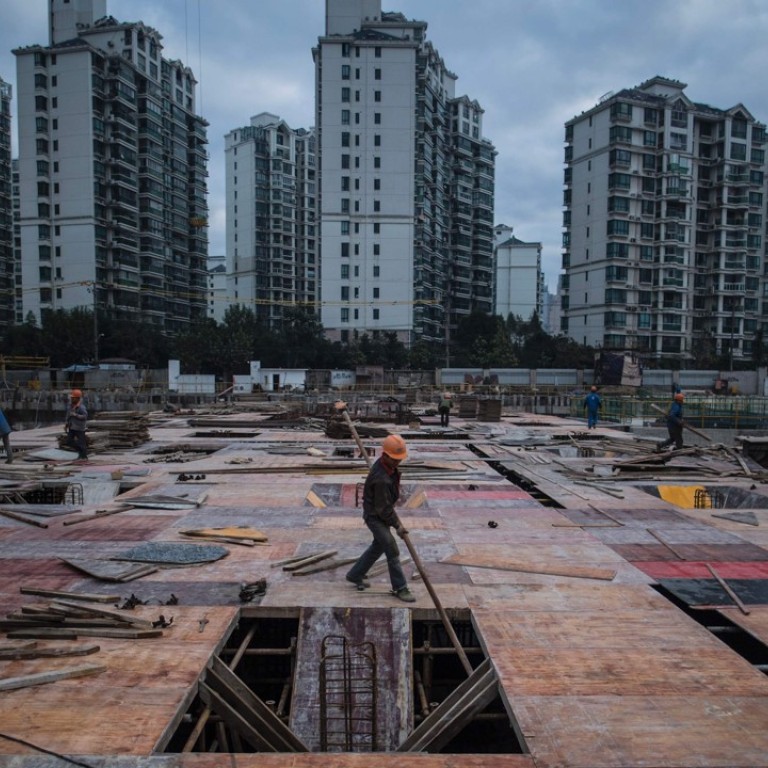
Shanghai’s next generation concedes defeat in housing war, drawdown housing fund to pay rent
Rocketing home prices and stagnant wages force many younger Shanghai residents to give up their dreams of ever being a homeowner in China’s most developed urban centre
An increasing number of younger employees in Shanghai, frustrated at the city’s runaway property market, are dipping into mandatory savings accounts that were intended to facilitate home ownership.
For many, the gap between wages and home prices has been stretched to the point where it no longer makes sense to save up to get on the housing ladder.
Ye Qiuyang, 32, decided to withdraw funds from her account, taking advantage of relaxed rules on fund withdrawals that came into effect in August.
“It was just dead money since I wouldn’t be able to use the housing fund to buy a home,” Ye said. “At least, it is no longer a dormant account if we are allowed to withdraw part of the funds.”
The Shanghai resident is among a new generation of white-collar workers seeking to access funds that were previously held in trust by the state.
Under the rule change, employees who are non homeowners in the city are allowed to withdraw a maximum 2,000 yuan (US$315) a month to use towards their rental housing expenses.
Those seeking to withdraw funds do not need to provide a leasing contract when submitting documentation.
Shanghai established its provident fund in 1991, becoming the first mainland city to institute the mandatory savings plan.
The fund, modelled after Singapore’s Central Provident Fund, was designed to offer low and medium-income residents affordable financing for home purchases.
Deposits made into the fund can be used as collateral for home loans at lending rates below the alternatives offered through local banks.
This is an expensive city where you always feel you are short of money
Full time employees are required to contribute 7 per cent of their salary to the account on a monthly basis. Employers make a matching 7 per cent contribution.
Ye, who is single, contributes 2,100 yuan into the provident fund account, based on her 15,000 yuan a month salary.
Ye’s contributions so far entitle her to a 500,000 yuan loan from the provident fund towards a home purchase. However, Ye said the city’s housing market, where a two-bedroom apartment goes for an average of 5 million yuan, is well beyond her reach. Instead she has opted to withdraw from the provident fund to subsidise her lifestyle.
“This is an expensive city where you always feel you are short of money,” Ye said. “To have an extra 2,000 yuan a month for my disposal is not bad.”
At the end of 2016, the outstanding value of Shanghai’s provident fund totalled 318.2 billion yuan, up 16.7 per cent from a year earlier.
The public housing fund in Shanghai has been a source of bitterness among local employees since 2010, when the city introduced limits on home purchases. As a result, many account holders were in the awkward position of contributing to provident funds that were blocked from property investment.
Those who already have at least two residential properties in the city are prohibited from applying for home loans from the housing fund, even as they are mandated to make monthly contributions.
Instead, in many cases individual accounts are accumulating as a nest-egg that can only be accessed upon retirement.
“We hope the city government can expand the scope for the use of the dead money,” said Wang Qingyu, an official with a Shanghai state-owned company. “After all, the living costs are high and many middle-income earners are tightening purse strings as part of their wages are deposited in the [provident] account.”
Anecdotal evidence showed that a rising number of white-collar employees in Shanghai save little – if anything at all – from their monthly salaries.
Many millennials, those aged at 20 to 34, have stopped saving, representing an economic departure from their parents’ generation in a country which has been known traditionally for its high savings rate.
“It’s not that we don’t want to save, we are just unable to save,” said Ye, who said that she spends freely on luxury goods such as clothes and cosmetics. “Take me as an example. I gave up saving because I realised that even if I save, say 100,000 yuan a year, owning a flat in Shanghai remains a daydream.”
The Shanghai government has pledged to build 700,000 rental homes by 2020 to ease concerns about the city’s lofty property prices.
“Given the sky-high property prices and home-buying restrictions, the public housing fund is technically of little use to many contributors,” said Bob Zhou, chief executive of Shanghai-based investment group Yinshu Capital. “It is time to give the contributors more options to make use of the money held in those accounts.”

